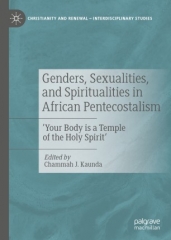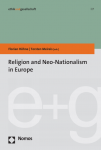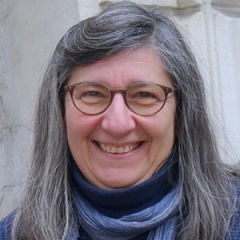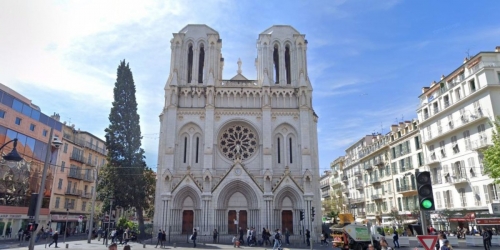-
-
Genders, Sexualities, and Spiritualities in African Pentecostalism
 In the last three decades, African Pentecostalism has emerged as one the most visible and profound aspects of religious change on the continent, and is a social force that straddles cultural, economic, and political spheres. Its conventional and selective literal interpretations of the Bible with respect to gender and sexualities are increasingly perceived as exhibiting a strong influence on many aspects of social and public institutions and their moral orientations.
In the last three decades, African Pentecostalism has emerged as one the most visible and profound aspects of religious change on the continent, and is a social force that straddles cultural, economic, and political spheres. Its conventional and selective literal interpretations of the Bible with respect to gender and sexualities are increasingly perceived as exhibiting a strong influence on many aspects of social and public institutions and their moral orientations.This collection published in Genders, Sexualities, and Spiritualities in African Pentecostalism, Palgrave, 2020, features articles which examine sexualities and genders in African Pentecostalism using interdisciplinary methodological and theoretical approaches grounded within traditional African thought systems, with the goal of enabling a broader understanding of Pentecostalism and sexualities in Africa.
As usual in English-speaking synthesis, French-speaking Africa is rarely mentioned, except a chapter devoted to Congo.
-
Religion and Neonationalism in Europe (2020)
 How do religions contribute to contemporary nation-building processes ?
How do religions contribute to contemporary nation-building processes ?Thanks to Florian Höhne, Torsten Meireis (Ed.), this impressive 2020 book sheds new light on the complex relationships between religion and (neo)nationalism.
The contributions to this volume analyse the complex relations between religious traditions, groups and ideas on the one hand, and (neo-)nationalism on the other. They do so on a conceptual level as well as with regard to concrete contexts and countries. They shed light on these relations from historical, sociological, theological and ethical perspectives, and contribute to the discourse on neo-nationalism, populism and public theology. While the first part of the book situates religion and (neo-)nationalism in a globalised world, the second puts the concepts of neo-nationalism, populism, religion in context. The third part presents different case studies (particularly from European countries), and the final part concludes with ethical and political perspectives.
Please notice that this book includes a significant contribution from Philippe Portier (EPHE, former GSRL director),
Philippe Portier, "Neo-Nationalism and Religion in France" (p.255 - 272).
-
Sunday schools movement in France: read Anne Ruolt
 Sunday schools were first set up in the 18th century in Protestant England to provide education to working children. Since then, the movement spread worldwide. Some very insightful researches have been conducted.
Sunday schools were first set up in the 18th century in Protestant England to provide education to working children. Since then, the movement spread worldwide. Some very insightful researches have been conducted.For England, let's mention Stephen Orchard, John H. Y. Briggs, The Sunday School Movement : Studies in the Growth and Decline of Sunday Schools, Londres, Paternoster, 2007.
For the United-States, see (among others) Bergler, Thomas E. The Juvenilization of American Christianity. Grand Rapids, MI: William B. Eerdmans, 2012.
The French Protestant landscape has been also impacted early on by the Sunday school movement. Thanks to (picture), who conducted several researches on Education and Protestantism, a very complete synthesis is available: Anne Ruolt, L’École du Dimanche en France au XIXe siècle, pour croître en sagesse et en grâce, collection religion – sciences humaines, Paris, l’Harmattan, 2012.
This book would largely deserve a translation. Dr Anne Ruolt, who recently defended successfully her habilitation thesis to supervise research, is currently part of the GSRL research team (Paris, France).
